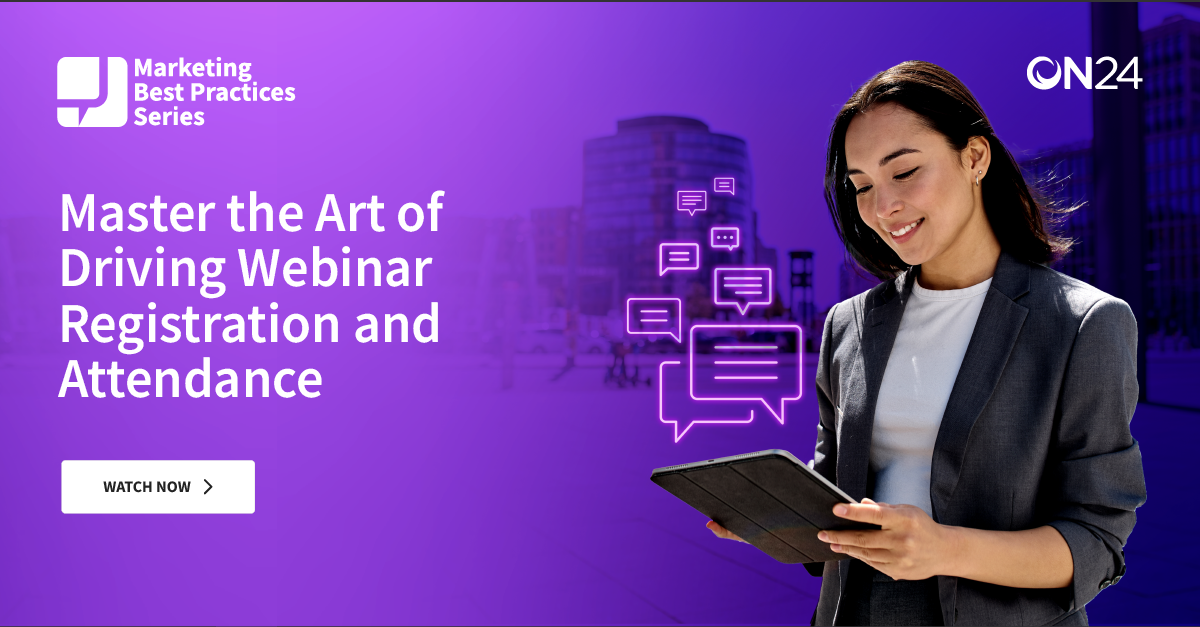Planning a successful virtual event requires a different skill set to pull off in-person meetings.
You won’t need to worry about securing a venue, arranging food and beverages or hiring full-scale production setups. However, you will need to take certain steps to ensure your event is engaging, well-attended and designed to help you hit a specific marketing goal.
So, you’re probably in need of a guide on how to plan a virtual event.
Whether your team is filled with complete newbies or marketers who have created tons of digital experiences in their time, every organization needs a checklist for virtual event planning. Here’s yours!
Ask yourself questions before the virtual event

1. What’s the purpose of your event?
Perhaps you want to launch a new product. Maybe you need to host an educational webinar, share expert insights via a live stream or use your event as a platform to connect with new partners or distributors. Either way, make sure you’re 100% clear on the purpose of your event before you begin the virtual event planning process.
2. What are your goals for the event?
Think about what you want to achieve with your session. For example, most events are designed to increase brand awareness, build pipeline, activate online networking or inform attendees on a particular topic. Decide on your goals now, and you’ll be in a better position to track and prove your ROI. More on this later.
3. What’s the budget?
You may not need to spend on catering, travel costs or speaker accommodation. However, virtual event planning still involves expenditure. Make sure you consider the cost of your technology platform, as the quality of the event and its seamless delivery will be central to its success.
4. Will you charge your attendees?
If you choose to charge a registration fee, ensure this is communicated to potential attendees.
5. How long will your virtual event need to be?
It’s no secret that attendees have shorter attention spans online, so be prepared to shorten speaker slots and intersperse your presentations with fun features to keep everyone engaged.
6. What time will work best for your attendees?
If you’re inviting international guests, you’ll need to consider how your event will fit into their schedules — especially if attendees live across different time zones.
7. How will you promote your session?
Don’t forget that promoting your virtual event is a key aspect in virtual event planning. From e-shots to paid search advertising, there are plenty of ways to spread the word about your virtual event and generate those all-important sign-ups.
8. What will your agenda look like?
Planning your virtual event’s agenda will ensure your speakers and guests know exactly what to expect on the day.
9. Do you need a keynote speaker?
A high-caliber speaker can be a major draw for any event, virtual or otherwise. Keep this in mind when virtual event planning.
10. Do you need a sponsor?
Getting sponsors involved can help cover event costs, not to mention strengthen partnerships with companies outside your organization by providing excellent exposure for their brand.
11. Who’s going to host and moderate your virtual event?
We suggest appointing one main host to guide attendees through the session, with the support of one or two moderators who can help to keep the event on track and under control.
12. Do you need to save time for a Q&A round?
Depending on the nature of your virtual event, you may want to give attendees a chance to interact with your speakers and get their burning questions answered. Q&A sessions must be thoroughly accounted for when planning virtual events to ensure that there’s sufficient time not only for the Q&A itself but also for the rest of the key aspects of your event.
13. How can you make sure your virtual event runs as smoothly as possible?
It’s easy to assume that guests will be familiar with how to log in to your virtual event and can make their way around your platform’s features confidently.
That said, sending out a “Know Before You Go” email several days before the session can help less-tech-savvy guests get to grips with what’s required of them.
On that same note, make sure to include “Housekeeping” notes at the beginning of each session. This is where a session’s host explains how attendees can interact with the virtual event — from engagement tools to simple troubleshooting — so everyone can engage with your content.
Clear instructions will help to prevent confusion and reduce the number of questions you receive from registrants before the event kicks off.
On the day of the virtual event

1. Check your audiovisual setup
Most virtual event platforms are incredibly easy to use (and ON24 is no exception). But be sure to test your camera and microphone setup before you go live or start recording to prevent any last-minute mishaps.
2. Turn on automated captioning
One of the crucial factors that many forget on their virtual event planning checklist is to turn on automated captioning. This will ensure your content is accessible to every audience. Remember, ON24’s speech-to-text technology can generate captions in more than 50 languages.
3. Check your attendees have everything they need
If your event is live, double-check that all your guests can see, hear and interact with the session as expected at the very start of the session. Answer any technical questions before the main session starts so last-minute queries don’t interrupt the flow of your event.
4. Engage with your attendees at every turn
Switch up your delivery to keep participants on their toes. Break up long presentations with polls, interactive chat boxes, light-hearted games, and signposts to supporting resources.
You can use your platform to collect valuable engagement and behavioral data from these features to help determine who interacts most with your content and how likely they are to take your desired call to action.
5. Try breakouts for more intimate networking opportunities
Allow audiences to engage in meaningful conversations with their peers on a 1:1 basis as they would with other attendees at an in-person event. There are a variety of ways you can host a networking session. For example:
- Text chat
- Breakout rooms powered by ON24 Breakouts
- Curate special networking sessions via ON24 Forums
The above are all acceptable ways to provide networking in a digital event.
After the virtual event

1. Send out a post-event survey
A short post-event questionnaire allows attendees to provide honest feedback. It’s best to send out the link to the survey within just a couple of days of the event, while the experience is still front of mind.
This allows you to collect important data and information regarding your virtual event, which can be used for future virtual event planning.
If you’re in need of some inspiration for your post-event survey, you can check out our 11 essential questions.
2. Analyze your data
As mentioned, your virtual events platform will help you collect all sorts of data relating to your event — and, crucially, let you see how your event performed in relation to the goals you set for the exercise at the start of the planning process.
Consider reviewing event metrics such as the number of registrations, the number of attendees and audience demographics. (ON24’s Prospect Engagement Profile makes this easy.) You may also want to review demographic information and individual and account-level engagement data to understand who benefited most from your virtual event.
3. Learn from your data
The insights listed above will help you determine how successful your event was, and how you might be able to improve your approach for better results next time. Make sure you spend enough time reviewing and analyzing your results — and how advanced analytics can help accelerate your analysis.
As a result, you’ve now got the insights that you need to better understand how to plan virtual events in the future that are successful and engaging.
You’ve got the virtual event planning checklist – now get the tech. Book a demo for ON24’s virtual events platform here.


